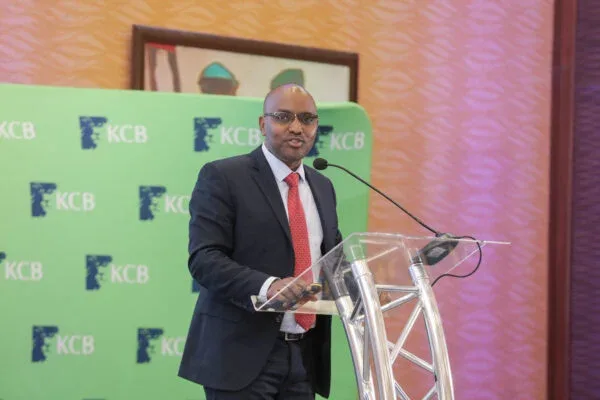KCB Bank has indicated that it has screened loans worth over Kshs. 336 billion for social and environmental risks while increasing its green portfolio in the past two years, bolstering its push for sustainable finance.
The Bank has also significantly cut its carbon footprint by 11.25% in its premises across the six countries it operates in, on a deliberate push to reduce carbon emissions from its operations.
In details contained in the latest Sustainability Report launched today, KCB resource consumption was down by 17%, on the back of a deliberate cut in the use of fuel, water, electricity, and paper. The Group monitors usage of the above resources on daily basis.
During the period, KCB increased its green portfolio from 4% of the loan book in 2020 to 8.4% last year, mainly in real estate, renewable energy, transport, manufacturing, and agriculture sectors. The Bank targets to increase its green portfolio to 25% by 2025.
KCB said it will in the coming years increase its sustainable financing by enhancing its threshold of loans subjected to Environmental and Social Due Diligence, increase its green lending, and further cut its footprint.
KCB Group CEO Paul Russo, had this to say, “We have refocused our efforts to deliberately address issues around environmental and social risk management in investment decisions to deliver a more inclusive, net-zero society for our stakeholders. We are building a business that is more sustainable and keener to manage a new climate future by creating and finding innovative financial solutions to address environmental and social challenges. We want to do more for communities and lift as many households as possible to prosperity while taking care of the environment around us. KCB has long understood the risk climate change poses to our communities. But with that risk, also comes opportunity—such as providing capital to breakthrough new technologies, helping to finance the increased adoption of resource efficiency, renewable energy, and supporting the infrastructure that will make our communities more resilient. The Bank will use its regional scale, reach and influence to deploy capital to help accelerate the transition to a low-carbon, sustainable economy.”
In the report titled “Progressive Action for Sustainable Development”KCB said; “Our practice in responsible lending ensures that the Bank does not finance projects which carry unmitigated environmental and social risk which have increased the frequency and magnitude of extreme weather events causing loss of lives, diminished livelihoods, reduced crop and livestock production, and damaged infrastructure, among other adverse impacts”.
This month, KCB Bank Kenya and IFC signed a partnership that will help catalyze the growth of climate finance in Kenya by increasing support for businesses addressing climate change. Under the deal, IFC will extend a $150 million loan to KCB to fund the growth of the bank’s climate finance portfolio, with a specific focus on financing the development of energy efficiency projects, renewable energy, climate smart projects, and green buildings. Through the partnership, IFC will support the bank to develop a climate finance strategy and build its capacity for climate risk assessment and reporting.

